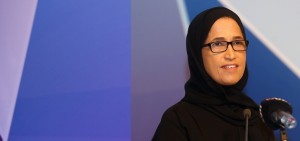
Qatar continues its advance toward being one of the most networked-ready nations in the world, according to the newly released Global Information and Technology Report 2014 (GITR).
In the report’s Networked Readiness Index, Qatar currently ranks 23rd in the world and first among the Arab nations out of 148 developed and developing countries, maintaining its ranking from the previous year. Finland, Singapore, and Sweden remained the top three ranking countries respectively.
Qatar’s strongest area of performance was government usage of ICT, ranking 4th in the world. In overall environment – how conducive the country’s market, infrastructure, and regulatory environment is to innovation and ICT development — Qatar ranked 13th, its best score among all sub indexes. Qatar ranked 21st in individual usage, and 26th in businesses usage. Qatar ranks first among Arab nations and 13th and 18th in the world on Environment and Usage sub-indexes respectively.
The annual report, whose theme this year is Rewards and Risks of Big Data, released by the World Economic Forum and INSEAD on April 23, 2014, is the world’s most comprehensive international assessment of the impact of information and communication technology (ICT) on nations’ development and international competitiveness, with this year’s coverage extending to a record number of countries. This Networked Readiness Index examines how prepared countries are to fully exploit the opportunities offered by the digital age in three areas: general business, regulatory and infrastructure environment for ICT; readiness of government, individuals, and businesses to use and benefit from ICT; and the actual societal, environmental and economic impact of ICTs. The assessment is based on a broad range of indicators from Internet access and adult literacy to mobile phone subscriptions and the availability of venture capital.
In addition, indicators such as patent applications and e-government services gauge the social and economic impact of digitization. One of the key findings of the report is that countries cannot only rely on ICT infrastructure development to become competitive. Rather, the benefits from ICTs can only be fully derived when a country implements a holistic strategy aimed at creating conditions for skills, innovation and entrepreneurship to flourish alongside modern infrastructure.
“The investment Qatar’s leadership made in next-generation infrastructure nearly a decade ago, a conducive regulatory environment, and a focus on innovation and entrepreneurship has been the very foundation for Qatar’s progress in harnessing the power of ICT for economic and social good,” said Dr Hessa Al-Jaber, Minister of Information and Communications Technology. “Yet as we shift to a knowledge-based economy, much work remains to be done, including implementing the National Broadband Plan, accelerating our e-government efforts, supporting an open and competitive ICT sector, enhancing our cyber security and safety, and empowering our people with the ICT skills to thrive in the digital world,” she added. Qatar showed the greatest room for improvement in the area of overall ICT readiness, ranking 36th, and affordability of ICT services, ranking 100th.
Source : Qatar News Agency












